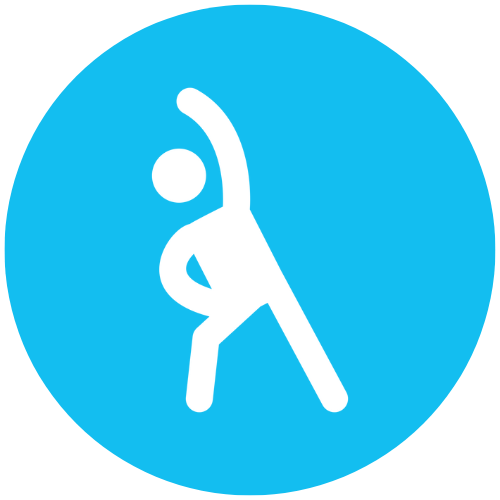Making changes to your lifestyle can often reduce high blood pressure, but for some people medication is also needed.
The good news is that there are lots of things you can do to lower your blood pressure:
Eat a healthy diet:
Cut down on salt |
Eat more fruit and veg |
Careful with caffeine |
Cut down on unhealthy fats |
Think about the sugar in your diet |
Live healthy:
Click on the images below for more information.
Achieve and maintain a healthy weight |
Move more |
Think about how much alcohol you drink |
Stop smoking |
Get plenty of sleep |

Manage stress and mental health |
|---|
Although it can be hard work, all of these things help bring the blood pressure down over just a few weeks. They can also help you to avoid the need for any medication and, most importantly, reduce the risk of the longer term problems due to high blood pressure.
Find out what you might need
There are lots of different medications to help control high blood pressure, with many people taking a combination of different ones. Your healthcare team will discuss all the treatment options, including which medications might be suitable. It is important that any decisions are right for you, so do ask your doctor or nurse any questions you may have.
 |
You may need to take blood pressure medication for the rest of your life. It is important to make sure you take medication regularly, otherwise your blood pressure could rise again, increasing the risk of heart attacks, strokes and all the other problems that high blood pressure can cause. |
If your blood pressure stays under control for several years, you may be able to cut back or stop treatment. It’s always worth talking to your healthcare team about this.
All medications can potentially cause side effects and blood pressure medications are no exception. However, most people do not notice any side effects from blood pressure medications. If you do think that you are having side effects from your medication, it is worth discussing this with your healthcare team.
The four commonest types of blood pressure medications are:
| Type of medicine | Names | Examples | How do they work? |
| Angiotensin-converting enzyme (“ACE”) inhibitor | Most have names ending in ‘pril | Ramipril, Enapril, Lisinopril, Perindopril | Help blood vessels relax and widen |
| Angiotensin receptor blocker (“ARB”) | Most have names ending in ‘sartan | Candesartan, Irbesartan, Valsartan, Losartan | Help blood vessels relax and widen |
| Calcium channel blocker (“CCB”) | Most have names ending in ‘pine | Amlodipine, Felodipine, Nifedipine | Help blood vessels relax and widen |
| Diuretics (sometimes called “water pills”) | Most have names ending in ‘ide | Indapamide, Bendroflumethiazide | Remove salt and water from the body |
The medication you need depends on your age, ethnicity, and whether you have any other health conditions, but as a guide:
  |
 |
Sometimes the more commonly used medications are not suitable or are not effective enough on their own. In this case, you may need to take an alternative or additional type of medication. Your healthcare team will advise you if you need one of the less commonly used types of blood pressure medication.
How do I know if my blood pressure has come down?
Your doctor or nurse will want to see you soon after you start making any diet or lifestyle changes or after you commence any medication. They may measure your blood pressure straight away or they may ask you to repeat home blood pressure monitoring (HBPM) or ambulatory blood pressure monitoring (ABPM).
You healthcare team will agree a target blood pressure with you. This does vary a little depending on whether you have any other health conditions, but generally the targets will be:
| If you’re aged under 80 – 140/90 (135/85 for HBPM/ABPM) | |
| If you’re aged over 80 – 150/90 (145/85 for HBPM/ABPM) |
Once your blood pressure is to target, your doctor or nurse will want to see you every year to support you, discuss your lifestyle and any medication that you take.















